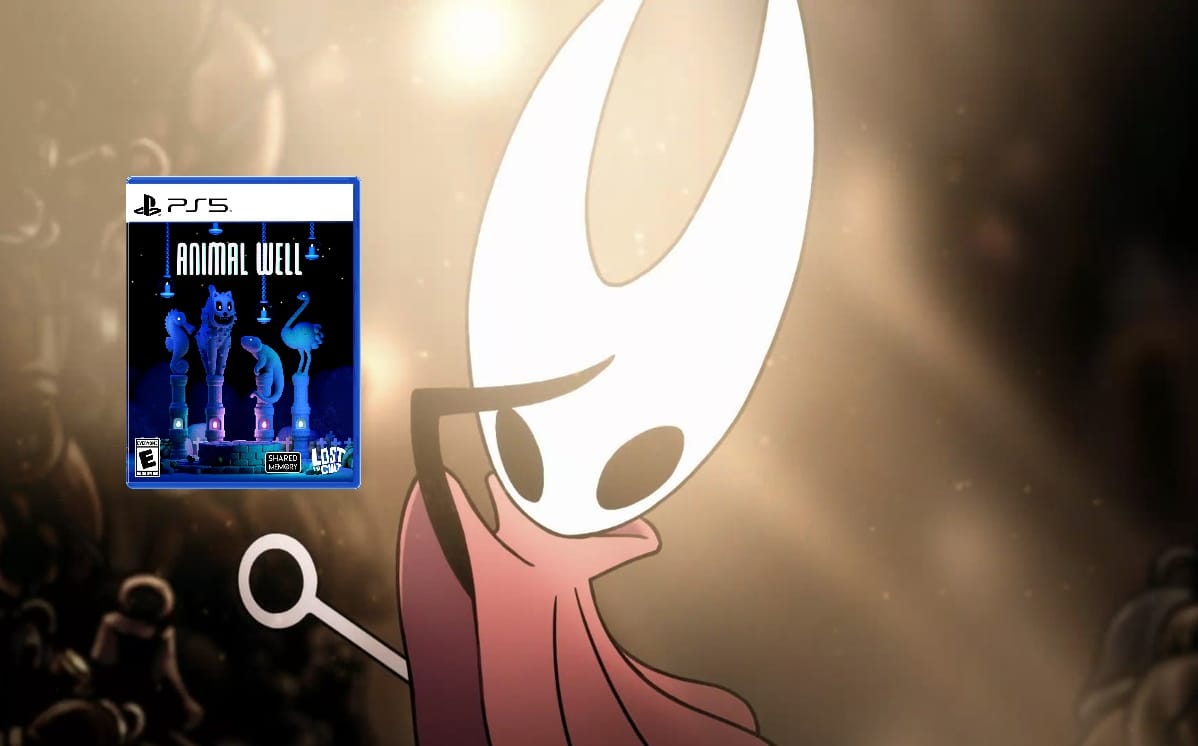Silksong helped me see how special Animal Well is

I’ll be honest, when Animal Well was first announced I expected it to be bad. It was an unfair gut reaction, based solely on my dislike of Video Game Dunkey (I have since come around on Dunkey, but we have very dissimilar tastes in games). However, Animal Well was good. Extraordinarily good.
It quickly became my GOTY contender for the year. After unlocking all achievements on Steam, I have since bought the collector’s edition for Switch, and then the Lost In Cult release for PS5 (where I do most of my gaming these days). Billy Basso really stole my Metroidvania Search Action heart in a big way.
All of that said, I still felt like Animal Well was filling a Silksong-shaped hole. The previous game to impact me in such a way was Hollow Knight—a game that I initially disliked but grew to love after clearing some rocky difficulty spikes in the back half of the game. As a reminder that I could do hard things, I would play the Hollow Knight’s original soundtrack during trying times. Hornet’s theme became my song of perseverance.
But Hollow Knight's lasting power wasn't due to its difficulty, at least for me. It was Christopher Larkin's haunting yet beautiful soundtrack, it was how all the richly detailed interacted with each other (discovering the Blue Lake fed the rainfall to The City of Tears was such a cool moment), it was pondering the fall of the White King and the ascendancy of the Radiant. I always felt motivated to get lost and explore, because I was consistently rewarded with thoughtful world building through rich environmental storytelling.
And much like Animal Well, I bought the collector’s edition for Hollow Knight. I have a couple Hollow Knight plushies. I have a Hornet tattoo. It really imprinted on me.
However, when people ask if I recommend them playing it, I hesitate. There’s a few areas that are rough around the edges. For example, the runbacks to bosses felt more like they were challenging my patience rather than challenging my skill. I wasn’t able to put it in words well until I saw Melos Han-Tani’s analysis.
thinking about Silksong boss runbacks. I feel like they don't quite make as much sense as in games where the runbacks are borrowed from, because it's easy to start boss fights with maximum HP resources. So the levels/runbacks become untethered from the boss fights, making the levels feel like filler
— melos han-tani (@hantani.bsky.social) 2025-09-10T23:18:08.610Z
To paraphrase: Runbacks work in games like Dark Souls where healing is finite. The challenge is to see how much healing you can preserve until you make it to the boss, which increases your chances of defeating it. However, when healing is infinite (such as it is in Hollow Knight and its sequel), it only serves as a psychological challenge. Mechanically, it is effectively padding.
Another one of Hollow Knight’s rough edges is that the difficulty is “lumpy”, not a curve. One of the hardest bosses (in my opinion) are the Watcher Knights boss. You have to face a gauntlet of six bosses, two at a time. It is by far the most difficult critical path boss, with its difficulty easily surpassing the final critical path boss of the game. I feel like having uneven difficulty throughout the game unnecessarily filters players early, especially when the player has less tools at their disposal to defeat difficult bosses the earlier in the game you go. It also robs any following boss that’s easier of their punch.
It’s worth mentioning that Hollow Knight’s DLC bosses were true sicko-levels of difficulty, but I feel like this is completely appropriate. DLC is bonus content for those looking for more challenges. They’re not in the critical path of the game, so those who don’t wish to engage with truly sadistic video game challenge can just easily opt out.
With Team Cherry saying that Silksong would be a good entry point for new players, I assumed that they’d follow this familiar format. Challenging but fair critical path bosses, with the true sickos getting rewarded with optional bosses and/or future DLC. I also—perhaps naively—assumed that Team Cherry would learn from the rocky patches of Hollow Knight and have a more smoothed-out difficulty curve.
If you’ve been following the Silksong discourse at all, you already know neither of these things ended up being true. Team Cherry instead doubled-down on difficulty (literally, if you consider that almost everything does double damage which was only reserved for extremely late game bosses in Hollow Knight). By the end of Act 1, you’re encountering bosses of Hollow Knight DLC levels of difficulty, while others are complete pushovers (Silksong did start as Hollow Knight DLC, so I can’t help but wonder if that’s why some bosses are absolutely brutal). The senseless runbacks that only challenges patience are back too.
I could go on about the extreme levels of difficulty, but it's all be said elsewhere before, so I'll stop here. That said, I’m a little disappointed in the lack of development of Team Cherry as game designers. It seems like they borrowed elements of Souls-likes and Search Action games without realizing how those mechanics work within the context of their own genres.
I know I’m coming down hard on Silksong right now. Believe it or not, I still like the game quite a bit. If it weren’t for staunch competition from KojiPro I could still easily see how Silksong might be Game of the Year for me.
Seeing Silksong's flaws made me appreciate how immaculate Animal Well is. Due to Silksong’s “lumpy” difficulty, I’m often taken out of the game and notice the artifice. In contrast, Animal Well was so brilliantly inviting that it was easy to get lost in its world. When Silksong circumvents your expectations, it does so to punish you. Like a false bench at the end of a long (senseless) runback that deals double damage, or a boss that explodes after you defeat them to make you have to beat them twice if you accidentally stand too close (like taking your hands off the controller to celebrate).
When Animal Well circumvents your expectations, it does so to spark wonder and joy. Like a Frisbee that you can use to distract dogs, or using the flute to warp across the map (both secondary functions you learn by following context clues). This wonder and joy enriches the world it inhabits, which in turn makes exploring the world itself even more rewarding. If I were pressed to list any flaws of Animal Well, I would have a very hard time.
That is not to say there is no place for games that are punishing. There’s certainly people that primarily seek this in their games (you can identify them by the words they use, such as "git gud" or "silk issue"). However, what drew me to Hollow Knight originally was not the punishment, but the world, music, and exploration. It seems all of those elements are still there for Silksong, albeit in a much more hostile environment, so I am very excited to keep playing. Yet Animal Well has these elements in droves and—more importantly—gets straight to the childlike wonder and doesn’t let go until the last bunny is found. ◼
